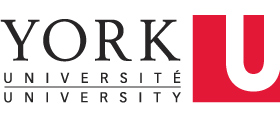
 By Dr. Amir Asif, Vice-President Research & Innovation, York University
By Dr. Amir Asif, Vice-President Research & Innovation, York University
Canada is at the cusp of becoming the most revolutionary, inclusive and accessible country in the world for health care innovation. Access to world-class academic institutions such as York University, which are leading impactful research, teaching and training, can address opportunities in developing inclusive, accessible and cost-efficient health care.
York University is well positioned to bring positive change to Canadian health care. The third largest university in Canada, York has a solid record of success and exceptional health care distinctions. York is internationally recognized for its programs in nursing, nurse practitioners, social work, health technology, kinesiology, health policy and management, clinical psychology, disease modelling, health informatics and neuroscience. With 37 research chairs in health-related areas, York’s community of interdisciplinary research is growing rapidly, and will expand with the launch of a new campus in Markham, Ontario and York’s proposed new School of Medicine.
Our researchers are national leaders in COVID-19 mathematical disease modelling research. Professors Jane Heffernan, Jianghong Wu and Jude Kong, are among the top three researchers in Canada for COVID-19 modelling publications, and all have transferred their research out of the lab to serve on national and international advisory boards to support in the fight against COVID-19.
There is a wave of innovation taking place in hospitals. The use of artificial intelligence technologies to diagnose, treat and predict complicated and costly diseases such as diabetes and cancer, and even to predict mortality rates based on the number of visits to the emergency room. To support the implementation of game changing research in health, York’s interdisciplinary researchers are collaborating with doctors and computer scientists to understand the social, legal, ethical and policy considerations for leveraging patient data and deploying artificial intelligence technologies in health care settings.
Technological innovation has significant ethical, equitable and sustainable considerations that play into the larger Canadian health care arena, in addition to cost and efficiency. Collaboration and peer-reviewed research drives innovation, in some cases, at a faster pace than industry and government. Professor Rebecca Pillai Riddell, for example, is leading at $5.45M project funded by the Canadian Institutes for Health Research and IBM Canada, among others. The project will train future students and early-career clinicians on digital and virtual systems grounded in the principles of accessibility and inclusion.
Locally, York’s partnership with the City of Vaughan will enhance our capacity to translate research into policy and practice and enable critical health innovations. For example, we aim to pair the Cortelluci Vaughan Hospital’s smart technology with York University’s data analytics and machine learning expertise to evaluate care practices, improve patient outcomes and optimize acute care resources, among other possibilities.
The COVID-19 pandemic has illustrated that health innovation is possible through collaboration across sectors and academia. York University is optimistic about the future of health care in Canada and is poised to expand its meaningful contributions to ensure health care is accessible and equitable for all.
 York University is a Sponsor of Research Canada’s 2022 Annual General Meeting. Visit rc-rc.ca/2022-annual-general-meeting/ to learn more.
York University is a Sponsor of Research Canada’s 2022 Annual General Meeting. Visit rc-rc.ca/2022-annual-general-meeting/ to learn more.
